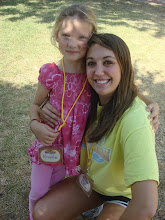Uncle Tom’s Cabin completely is different from what we view as “classic” children’s literature. First off we see that the selection we read is not really written for a child to comprehend, and does not have a child as the main character. For example the first sentence of the selection has very intricate words the average child would not understand like, “It is impossible to conceive of a human creature more wholly desolate and forlorn than Eliza, when she turned her footsteps from Uncle Tom’s cabin.” (243) While the first sentence from The Lamplighter is, “It was growing dark in the city.” (79) Stowe’s book is obviously not written to the lower vocabulary level that Cummins’ book is. I find it interesting also that Stowe has primarily adult characters. I feel that Stowe did this for a reason. I bet that Uncle Tom’s Cabin was used to impact the adults and get them to teach what they think about the book to their children.
I know that we talked about how slavery was a topic that would be talked about, but I feel that Stowe is aiming for the older audience to impact the younger audience. I feel that slavery is an important enough of a subject it cannot safely be translated down to the children and still have the same effect. I think that slavery also shows that no matter if you are good or bad, things for the slaves always end up badly. “’Lucy,’ said the trader, ‘your child’s gone; you may as well know it first as last.’” (327) Lucy had been a very good person, obeyed her masters, went with the strangers, and was a good Christian, yet her child get’s stolen. Personally I do not feel that as a good incentive to be a good, obedient Christian. I think that there is a disconnect between Stowe and the other selections we have read because of the point Stowe was trying to make, and the fact that the main lesson wanted to be obtained was a very serious event, and there is no way to make slavery an easy to accept or listen to thing. Stowe obviously did a great job with her writing, but I do not feel that it is necessarily “children’s literature”.
Wednesday, February 17, 2010
Subscribe to:
Post Comments (Atom)






I think that it is great that you picked up on the fact that Stowe was targeting a difference audience then we are used to reading. I agree that it is a very different type of reading because of the seriousness of the topic that is being addressed. Stowe does not clearly state what she thinks a “good” child is, which makes this text very different from ones that we have previously read.
ReplyDeleteYou touched on some really great topics, especially the fact that Stowe was writing this in the intention for older people to read the novel. As we discussed in class, Stowe was targeting an older audience, especially parents that could relate Eliza's journey to getting her child to freedom. Also, you did a great job talking about how slavery is a very touchy topic. Of course children had the sources to know what was going on, but Stowe definitely reflects on some more serious topics. Great job!
ReplyDeleteI'm glad that you pointed out the differences between this piece of literature and previous. It definitely was not written for the child but like we talked about in class, for the mother.
ReplyDeleteI agree with your thought that uncle toms cabin wasn't so much written for children, but rather the "older audiences" in an effort to influence children to take a specific stance on slavery. I think in addition to being written for parents it was also written to educate the people that were either on the fence about slavery or the people who were just unaware of the reality of slavery and what it was doing to families.
ReplyDelete